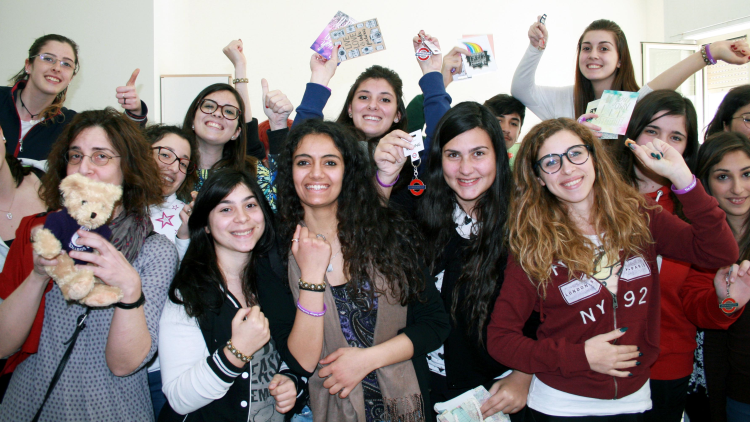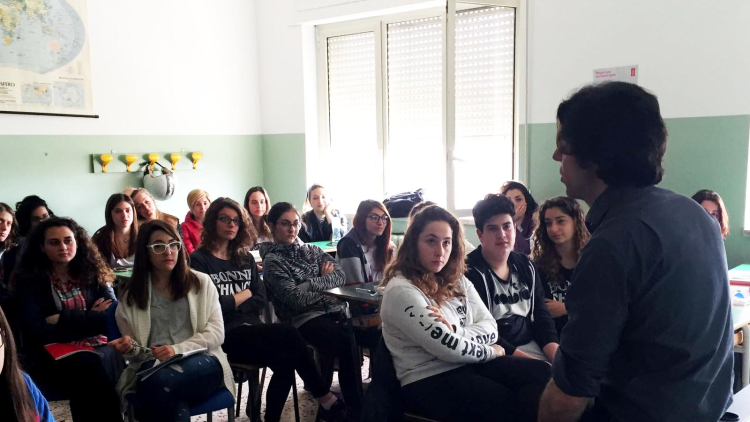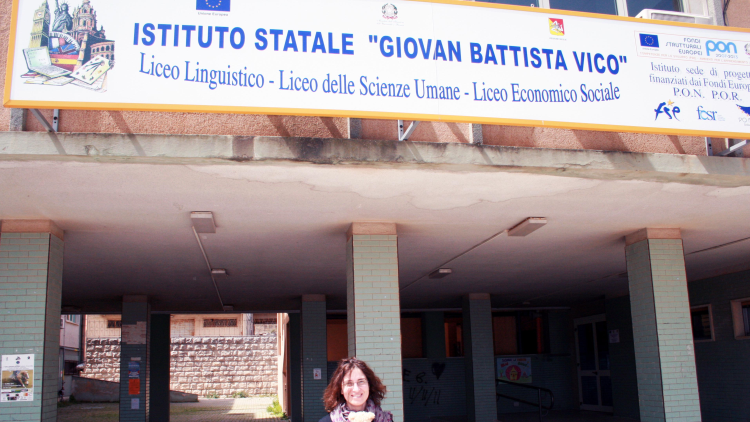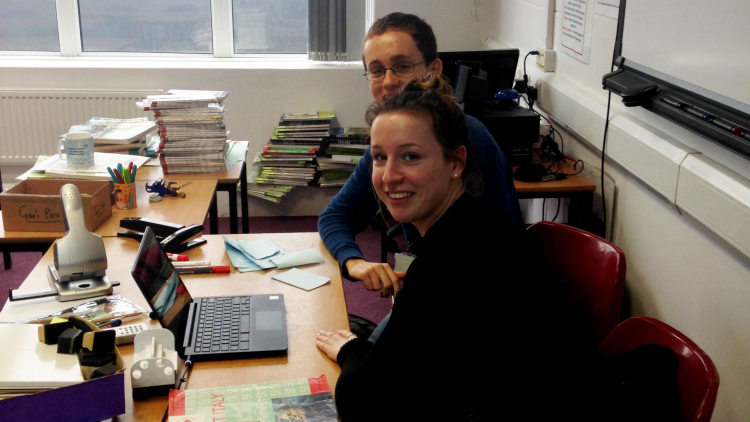




Exploring the ongoing legacy of Mussolini’s fascist government in Italy, 18 of our first year modern history students are taking part in an innovative new project, working with students from the Giovan Battista Vico Secondary School in Ragusa, Sicily.
The considerable redevelopment which Ragusa underwent during the fascist period is reflected in the town’s architecture, leaving a lasting legacy.
Students from Ragusa have been engaged in a local history project, exploring their town and documenting the various aspects of fascist architecture and propaganda that can still be seen. Conversations with their elderly relatives, who experienced life under fascist rule, has proved a fascinating and enlightening form of gathering primary evidence about life at that time.
Our students were able to discuss these findings, with the students from Ragusa, via video conference, enabling them to gain a better understanding of how personal history, family background, contrasting school curriculums, together with the buildings surrounding us, can shape our conception of historical events in the present day.
By facilitating this opportunity for our students to talk directly with their Italian counterparts, who come from a region of Italy that was directly affected by fascist rule, the project has helped expand their horizons and directly informed their A level studies. Students from different parts of Europe have been able to work together to explore and discuss history, politics and their own family's’ experiences during World War Two.
First year Isabel Aughterson, who is involved in the project, said “The views of the students from Sicily, on fascism, were more complex than I expected and added to my understanding. This project is a different way of learning, from studying from a textbook and the anecdotal evidence the Italian students could provide us with, was something I would never have accessed otherwise.”
Stella Cunningham, also a first year commented “We all found working with the students in Sicily so enlightening on the subject of fascism, both during Mussolini’s time and since. We have formed a bond with the group, both in a way that allows us to learn and as friends.”
Student Amy Bryant added “Understanding how students in Sicily study a controversial part of their past, has really helped me to see the positives and negatives of Mussolini’s reign in Italy, as from our perspective it is easy to see him as completely negative. It was good to work with people our own age, as it is easier to relate to and understand their opinions. I have broadened my cultural understanding of how other education systems work.”
Over the Easter holidays, Curriculum Manager for modern history, David Brown, was able to visit the Giovan Battista Vico Secondary School in Ragusa, to develop the growing partnership with the College. The students from Ragusa took him on a guided tour of their town, focusing on the fascist buildings they had been researching for the project. He also taught several classes, focusing on aspects of the research project the students have been working on, as well as other topics, including contemporary British politics.
David said “The project has been an amazing way for students, in two quite differing areas of Europe, to discuss complex areas of history, going beyond the classroom. It has been inspiring to see our students talking about politics and history with young people from Ragusa. Students have had the chance to investigate what it was like to live through fascism and how its legacy continues to affect Ragusa today. The Italian students had the opportunity to reengage with their own families’ and the Town’s history in a way that many of them had not done before.”
This is only the first stage in what will hopefully be a developing relationship between Giovan Battista Vico Secondary School and The Sixth Form College Farnborough. The College aims to take students to Ragusa in 2017, to work directly alongside the students from Ragusa on aspects of Italian history.